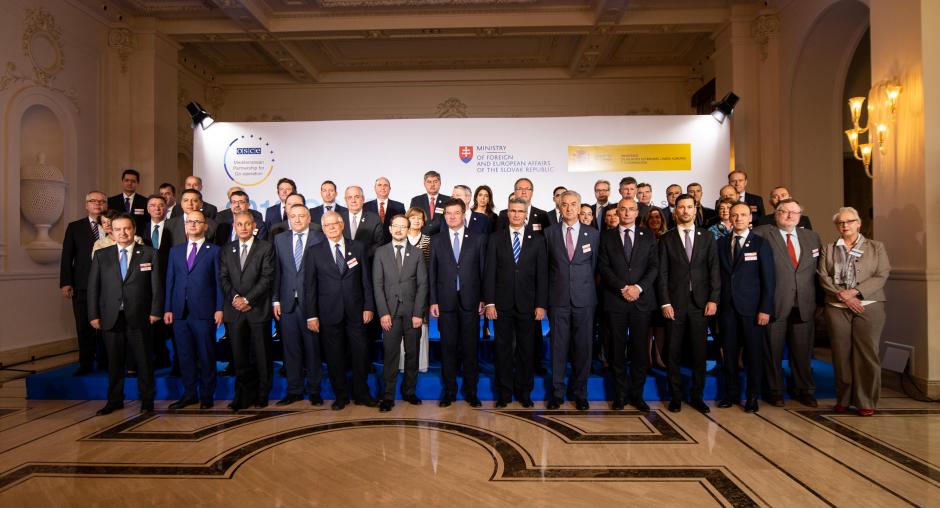Action-oriented dialogue and co-operation in Mediterranean a must for successfully governing energy use impacts, OSCE conference in Malaga concludes

MALAGA, Spain, 26 October 2018 - Growing economic and human interconnectedness have triggered developments that Europe and the Mediterranean region can only successfully govern if countries join forces in action-oriented dialogue and co-operation, say participants at 2018 OSCE Mediterranean Conference closing today in Malaga.
“The challenges we are facing are global. They are greater than Europe. Greater than Mediterranean. Greater than Africa. We must realize that the Mediterranean does not divide us. The Mediterranean unites us. It binds us,” said Miroslav Lajčák, Slovak Minister of Foreign and European Affairs.
Lajčák said that it has taken humanity a long time to understand how energy use impacts our planet, our security and our economies. “The issue lies at the heart of both the UN 2030 Agenda and the Paris Agreement on Climate Change. That´s why Slovakia has identified the energy security and connectivity as the first priority in the Economic and Environmental Dimension of our 2019 OSCE Chairmanship.”
“Let me be clear. Governments can provide the structure, the incentives, the framework. But it’s the private sector that will need to help us go beyond the finish line,” said Lajčák.
OSCE Secretary General Thomas Greminger said that during today’s session, he sensed broad-based support towards a more substantive Mediterranean Partnership, more fully anchored to the OSCE agenda. “There also seems to be strong support for taking a fresh look at the Partnership in the direction of action-oriented dialogue,” he said.
“Perhaps no other field than energy in which the interdependence of the Euro-Mediterranean region is more manifest, for both regional prosperity and security. Energy co-operation stands out as an area in which the OSCE and its Mediterranean Partnership have the potential to develop further co-operation,” said Greminger.
Josep Borrell, Spanish Foreign Minister, said that the Mediterranean Partnership is not only a partnership of governments but also of citizens. “Energy and energy security affect everybody. Energy poverty is a reality in the region, Spain included. To tackle this problem the Spanish government has taken relevant measures in this field,” said Borrell.
“In order to develop the great potential of our region in energy issues we must continue to the reinforce Euro-Mediterranean co-operation. We have to develop a shared vision and common priorities,” he added.
Borrell said that Spain firmly believes in multilateralism and considers the Mediterranean Partnership essential for security and co-operation in our region.
Italian Deputy Foreign Minister Guglielmo Picchi recalled the importance Italy attaches to the strengthening of co-operation among the 57 OSCE participating States and the Mediterranean partners. Particularly on those matters on which the respective agendas focus, like the handling of migration flows, fight to human trafficking and to terrorism and energy co-operation.
“The Mediterranean Security dimension poses challenges that must be tackled and opportunities to be seized. To this end, we need a strengthened partnership and a long-term vision,” said Picchi. He underlined the tangible commitment of Italy in the OSCE for projects and initiatives directed to strengthen cooperation links with countries of the Mediterranean “South Shore”. “At the Milan Ministerial Council in December, we plan to translate our Chairmanship’s engagement into concrete commitment," said Picchi.
On the margins of the conference, Union for the Mediterranean (UfM) Secretary General Nasser Kamel and OSCE Secretary General Greminger signed today a Memorandum of Understanding for programmatic co-operation.
“The OSCE and the UfM are complementary organizations: overlapping membership, shared commitment to co-operation and peace, with the OSCE more focused on security and UfM on economic-social issues. We look forward to closer co-operation and co-ordination over the coming months. Concrete work lays ahead of us,” said Greminger.
